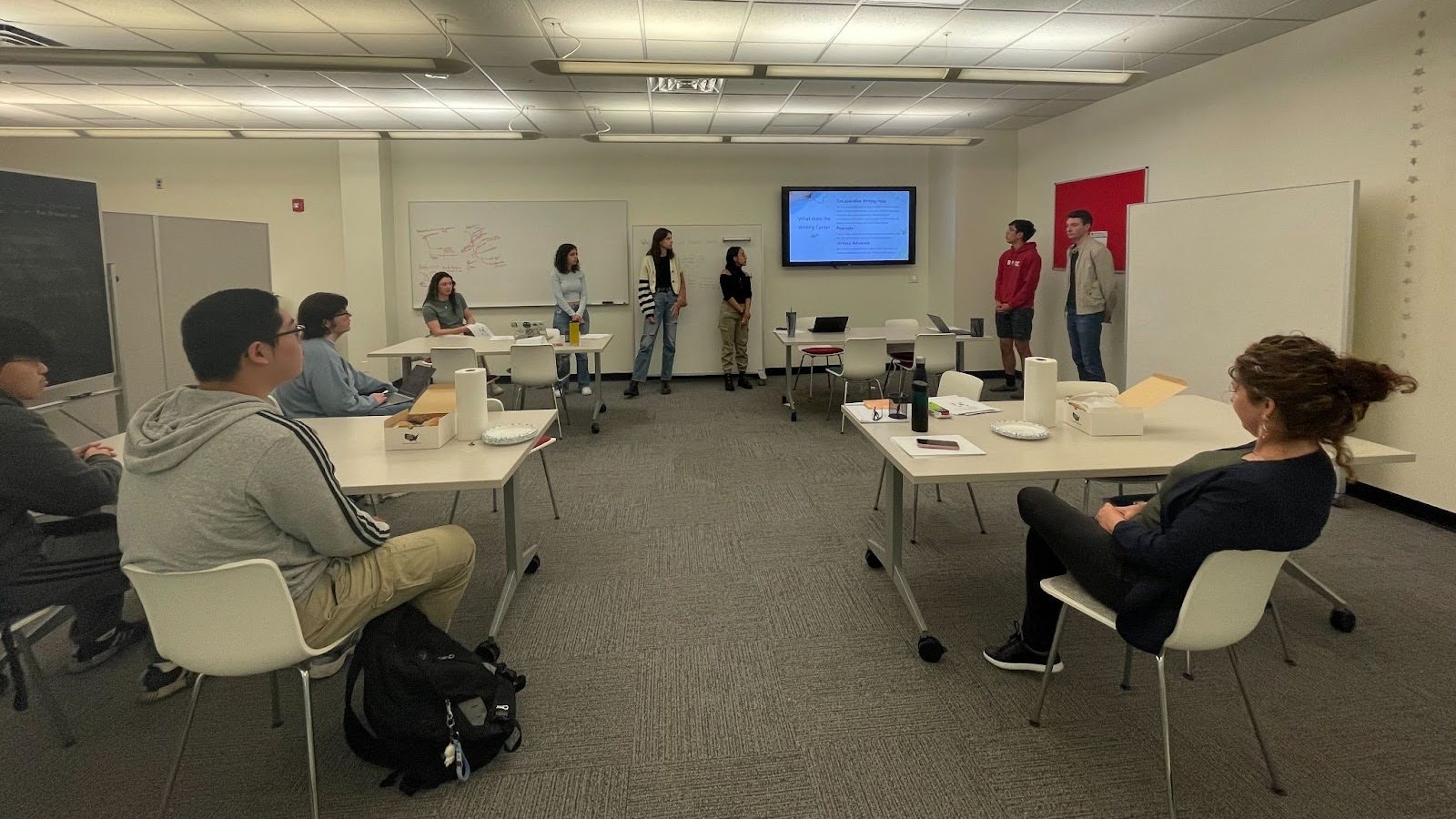Students Embrace Linguistic Identities in Drexel Writing Center Workshop
By Anna Gordover
 Peer Readers at the the Drexel Writing Center recently hosted a linguistic diversity workshop that encouraged students to embrace the distinct parts of their identities that can influence their writing process.
Peer Readers at the the Drexel Writing Center recently hosted a linguistic diversity workshop that encouraged students to embrace the distinct parts of their identities that can influence their writing process.
January 16, 2024
Most of us arrive at college having been taught that there is one correct way to write. Our high school English classes stress the importance of the classic five-paragraph essay, the proper way to analyze a text, or the formal tone students are encouraged to stick to even as they navigate vastly different writing genres. In short, we may think our papers are only “good” if they follow the ever-changing rules of standard academic English — but to actually find our distinct voice and gain confidence in our writing, we can and should look beyond the guidelines we were taught in school.
This fall, we (undergraduate writing tutors known as Peer Readers) hosted our first linguistic diversity workshop at the Drexel Writing Center (DWC), a collaborative event that encouraged students to embrace the distinct parts of their identities that can influence their writing process. The workshop introduced the idea that there is no “correct” way to speak or write, and that the standard academic English we’re taught in grade school can be used as a tool without limiting our individual voices.
Here at the DWC, we believe the linguistic rules that influence our rhetoric, word choice, flow, tone and more can come from more personal and unexpected places, which we can draw on to enhance our writing. Techniques like “codemeshing” (mixing the dialects/languages we use in different settings — at home, in school, at work, wherever!) can transform a writer’s voice completely.
We started the workshop by talking about idiolects: the unique collection of individual linguistic resources one possesses that includes dialects, vernaculars, cultural terms and languages. We also introduced a group activity to help participants identify different elements of their linguistic fingerprints, from the languages they may speak at home to the phrases that may be unique to their friend groups or majors. Students left the room feeling more aware of the places and communities that can influence their writing styles — and, ultimately, empowered enough to push the boundaries of their writing for future projects.
Interested in similar workshops happening soon? Want to know more about the Drexel Writing Center’s ongoing mission to assist and support student writers? Be sure to keep up with us on the College of Arts and Sciences' website, follow us on Instagram and tune in to the DWC podcast on Spotify and Apple Podcasts. To book a personal consultation with a Peer Reader, Graduate Writing Consultant or Faculty ELL Specialist, check out the official schedule at www.drexel.mywconline.com.
Anna Gordover '24 is a communication major in the College of Arts and Sciences and a Peer Reader at the Drexel Writing Center.